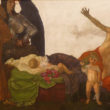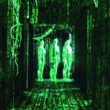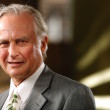What Science REALLY Says About the Soul (& Life After Death)
by Joe Heschmeyer
Filed under Science

If you’re not following the debates on all things scientific and religious, it’s easy to come away with the vague sense that science has “proven” that (a) the ‘mind’ is really just the brain, or (b) that there’s no such thing as life after death, or (c) there’s no such thing as an immaterial soul. But what’s remarkable about each of those three things is how far the vague sense of what science probably says differs from what the actual science says. I was reminded of this... Read More
The Flatlander’s Argument Against Miracles
by Joe Heschmeyer
Filed under Uncategorized

In a Pentecost sermon that was later published as the essay “Transposition,” C.S. Lewis posed a serious objection to the gift of “speaking in tongues,” sometimes called glossolalia. But the objection he makes (as we’ll soon see) applies to everything from miracles to love. First, here’s the dilemma Lewis finds: The difficulty I feel is this. On the one hand, glossolalia has remained an intermittent “variety of religious experience” down to the present day. Every... Read More
The Science of Miracles
by Joe Heschmeyer
Filed under Science, The Church

What happens when an atheist doctor and historian is given access to the Vatican’s Secret Archives to investigate miracle claims? Just such a thing happened in the early 2000s, and both the story behind it, and the doctor’s conclusions, are worth recounting. Dr. Jacalyn Duffin, a hematologist (M.D.) and historian (Ph.D.), was the Hannah Chair of the History of Medicine at Queen’s University from 1988 until 2017, and she’s served as both the President of the American Association for... Read More
Is Religion Just a Social Construct?
by Joe Heschmeyer
Filed under Religion

One of the arguments against religion is that it’s a social construction – that is, that religion (particularly, belief in an interventionist or “moralistic” god, meaning a god interested in human affairs and morality) is something invented by society, in order to regulate its citizenry. One of the best arguments in favor of this is that more developed societies have more developed religious systems, and are more likely to believe in a god who cares about morality: Source This... Read More
Just What Are Men and Women, Anyway?
by Joe Heschmeyer
Filed under Anthropology, Sexuality

Sometimes, the most important questions are the basic ones. Back in 2011, I argued that the most important question in the gay-marriage debate was “What is marriage?” The next year, Robert George, Ryan Anderson, and Sherif Girgis published a book exploring just that question: What Is Marriage?: Man and Woman: A Defense. But in the face of contemporary questions of transgenderism and gender identity, it turns out that we need to ask a yet more-basic question: what are men... Read More
Are We Living in the Matrix?
by Joe Heschmeyer
Filed under Culture

On Monday, the New Yorker suggested that “the bizarre finale to Sunday night’s Oscar ceremony brought to mind the theory—far from a joke—that humanity is living in a computer simulation gone haywire.” Lest you think that such a self-evidently absurd theory is a mere cry for attention from a dying publication, the idea that we’re all in the Matrix was actually seriously debated at the American Museum of Natural History’s 2016 Isaac Asimov Memorial Debate. The list of those partial... Read More
Getting Morality Wrong
by Joe Heschmeyer
Filed under Morality

Back in April, Gail Dines, a sociologist at Wheelock College in Boston, wrote a Washington Post piece arguing that pornography is a public health threat, regardless of its (im)morality: The thing is, no matter what you think of pornography (whether it’s harmful or harmless fantasy), the science is there. After 40 years of peer-reviewed research, scholars can say with confidence that porn is an industrial product that shapes how we think about gender, sexuality, relationships, intimacy, sexual... Read More
4 Errors About the Burden of Proof for God
by Joe Heschmeyer
Filed under Atheism, The Existence of God

I used to be a lawyer before entering seminary to prepare for the Catholic priesthood. It’s perhaps unsurprising, then, that I’m fascinated by questions about the “burden of proof” in religious questions. For example, does the burden of proof fall on the believer or the atheist? What sort of evidence is permissible to meet this burden of proof? Do “extraordinary” claims require extraordinary evidence? Should they meet an extraordinary burden of proof, above the burden required for... Read More
Trial by Fire: Modernity’s Response to Miracles
by Joe Heschmeyer
Filed under Christianity and Science

Perhaps no single image captures the popular conception of the “Dark Ages” than the idea of trials by ordeal. These infamous trials are the reason we refer to a difficult situation as an “ordeal,” or perhaps a “trial by fire.” One of the most famous depictions of a trial by ordeal is in Monty Python and the Holy Grail. A woman is accused of witchcraft, and rather than gathering evidence or taking any but the most cursory of testimony, an elaborate test is designed to “objectively”... Read More
How Richard Dawkins Helps Prove Biblical Inspiration
by Joe Heschmeyer
Filed under New Atheists, The Bible

American Atheists responded to the Pennsylvania state legislature’s designation of 2012 as “Year of the Bible” with mocking billboards, and a press release insisting that “the House of Representatives should not be celebrating a barbaric and Bronze Age book.” It’s a common argument against the Bible, that it can’t be trusted because it’s a book from the Bronze Age. Over on Twitter, Richard Dawkins extended this argument to attack both the Bible and the Qu’ran. Bible and Quran... Read More







